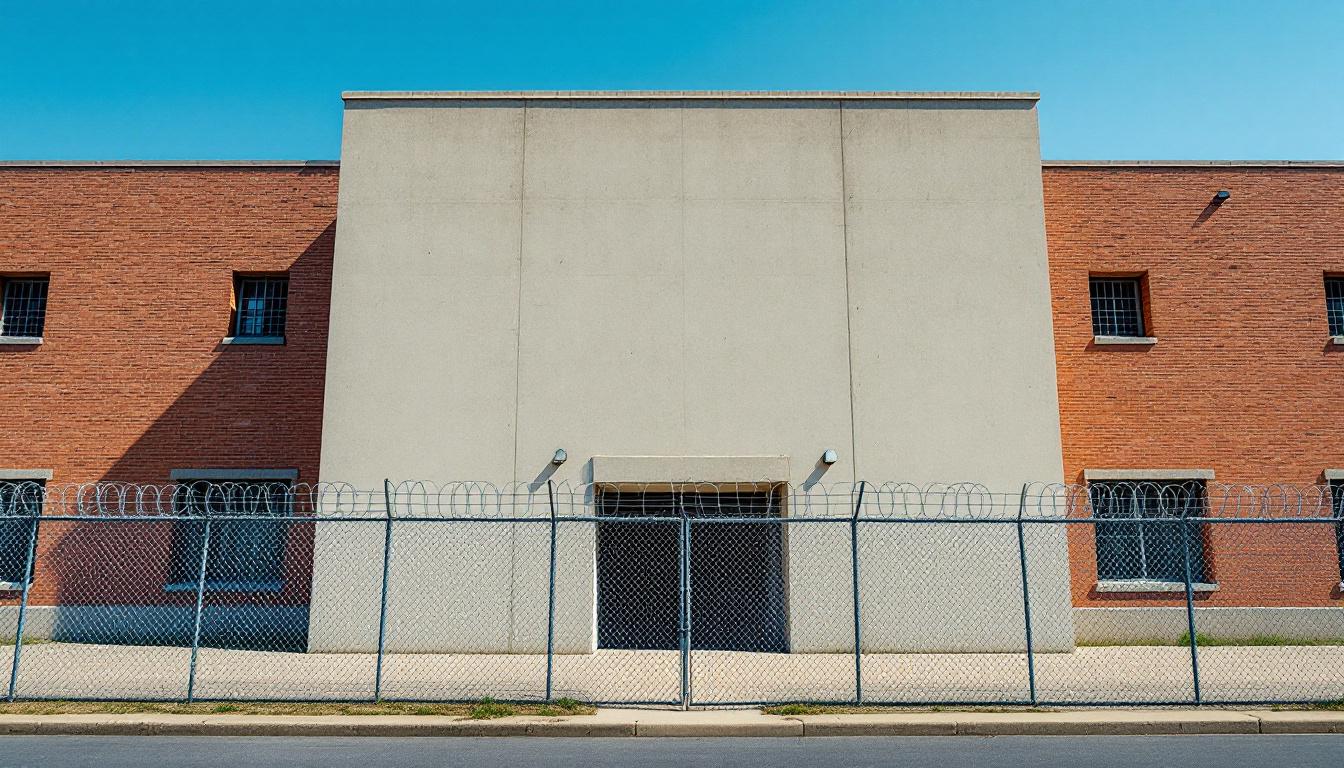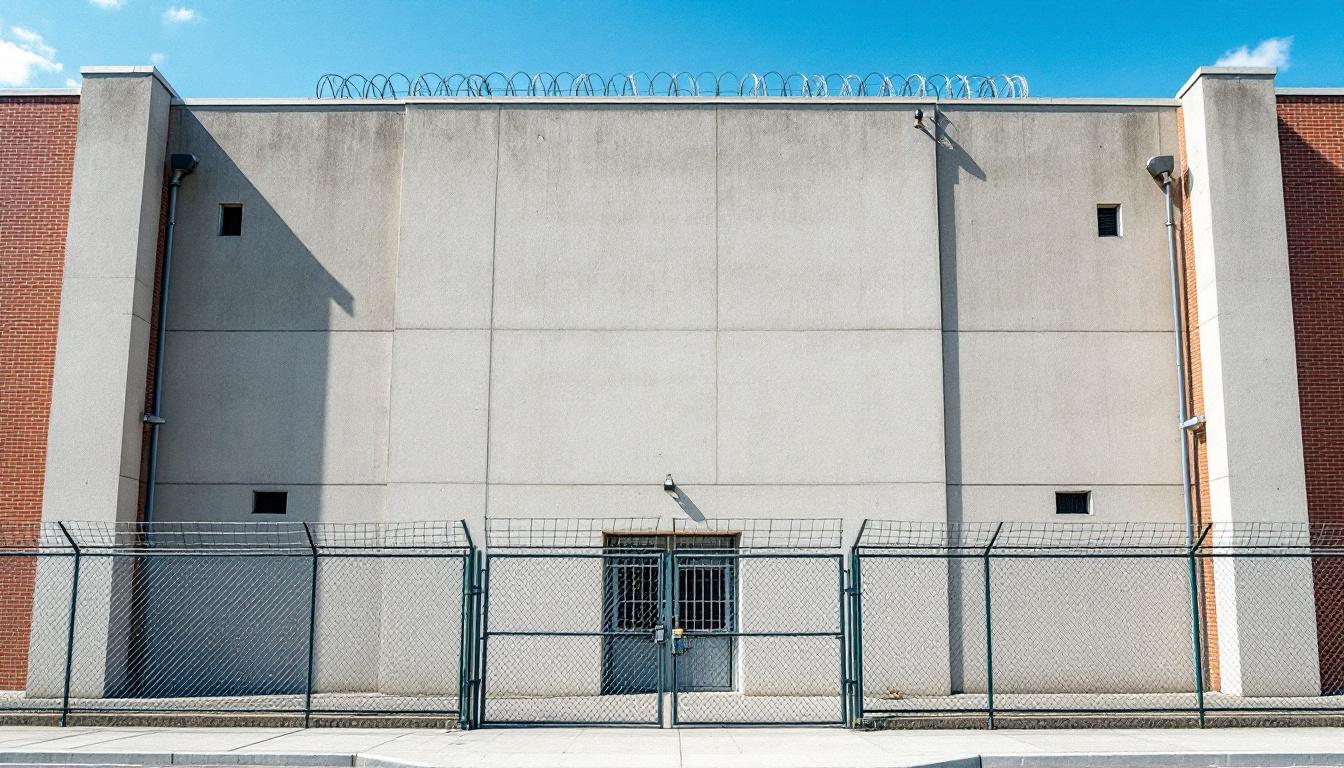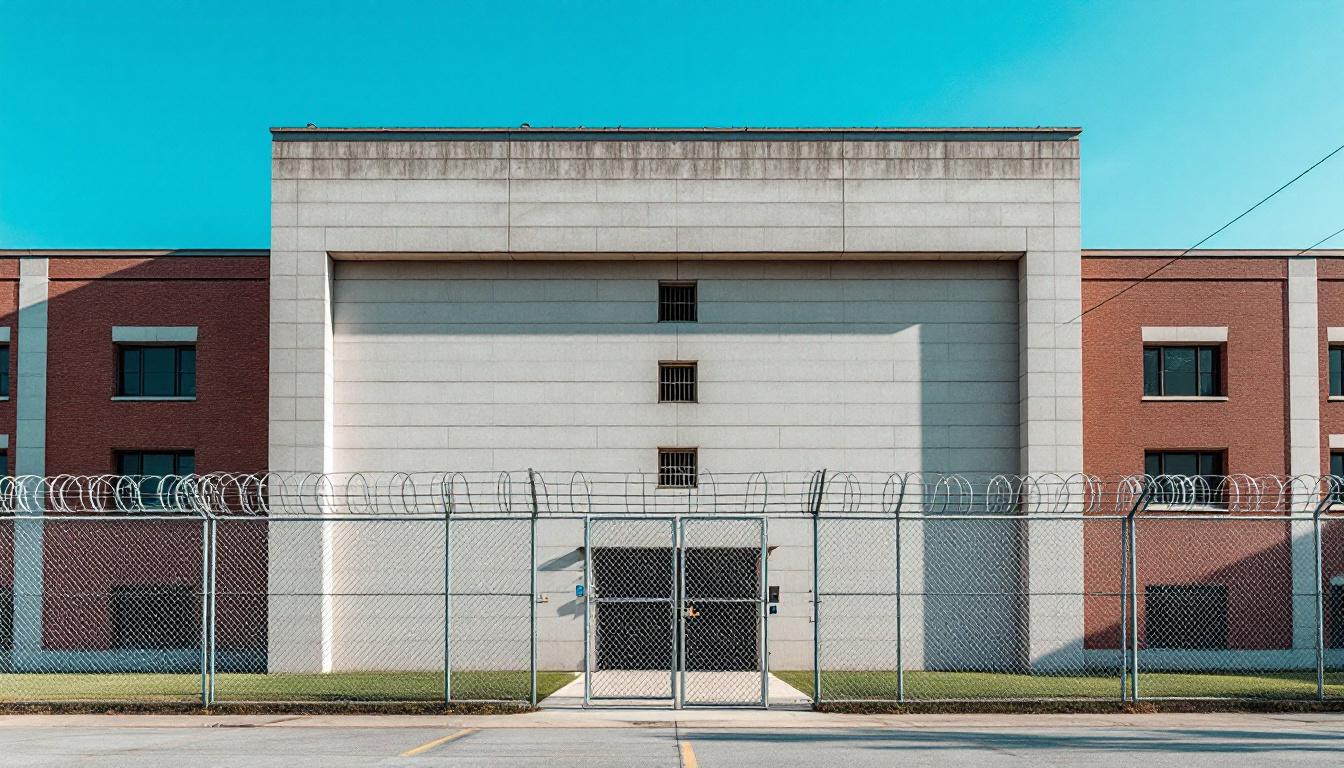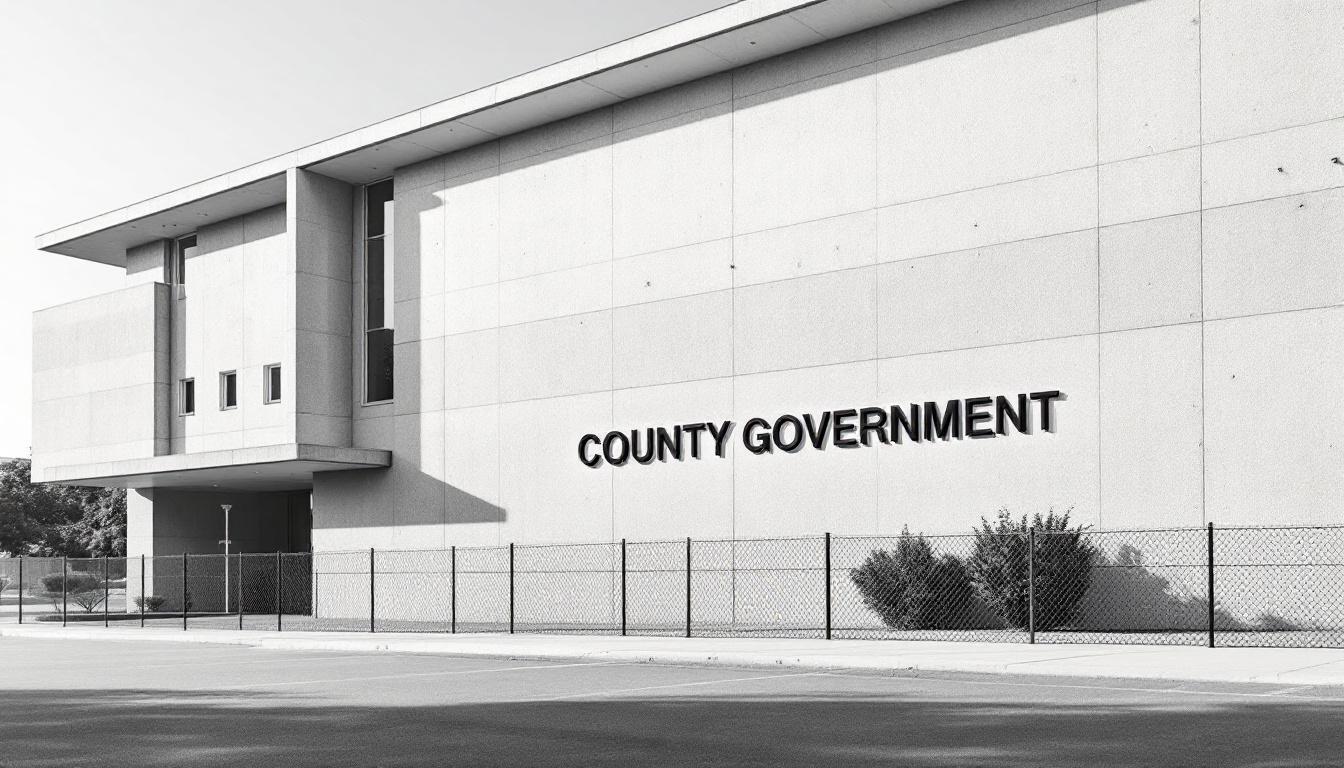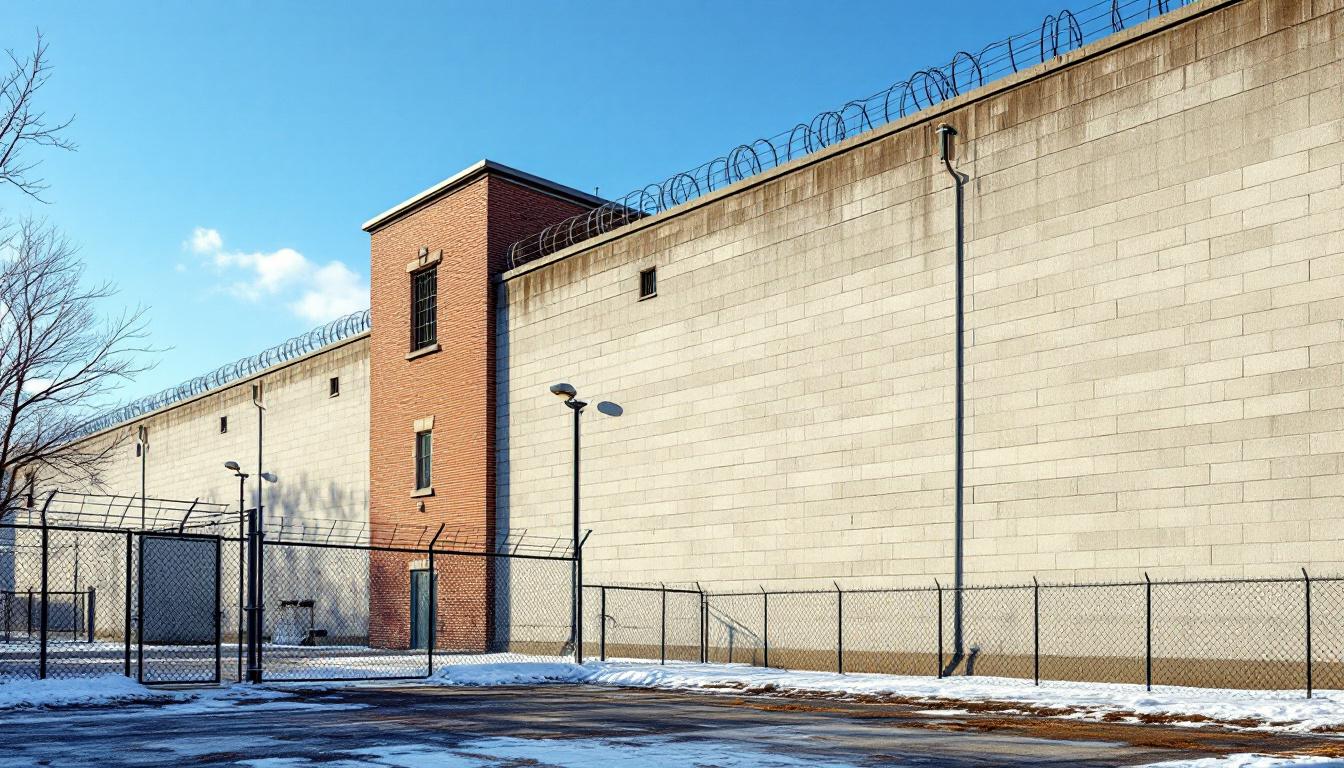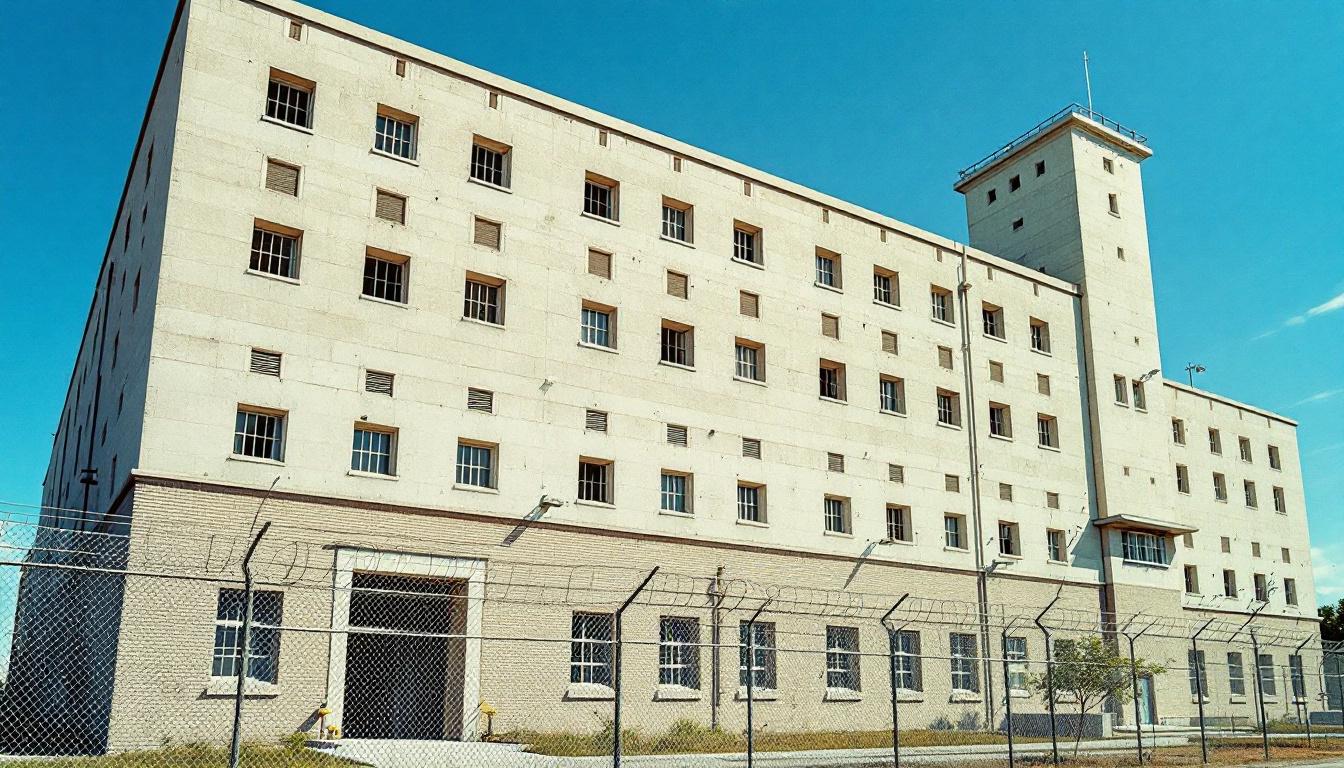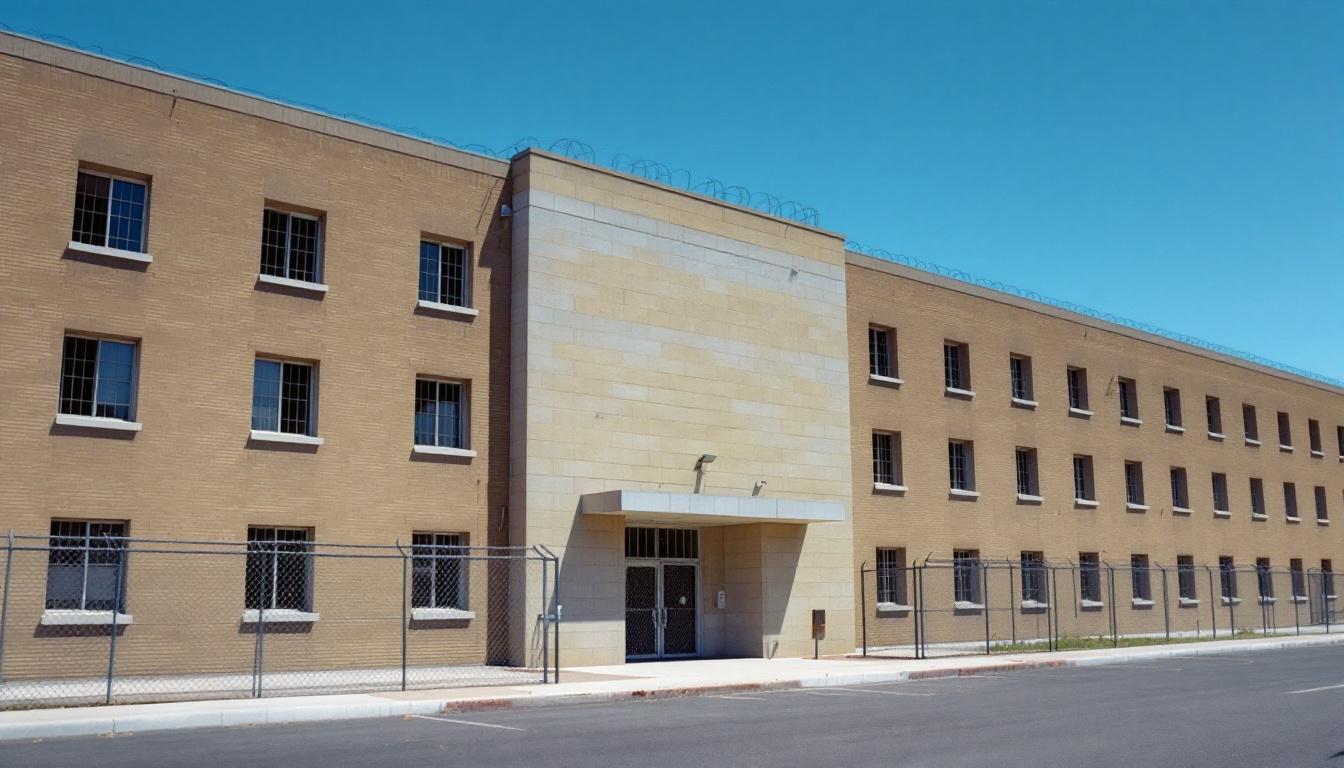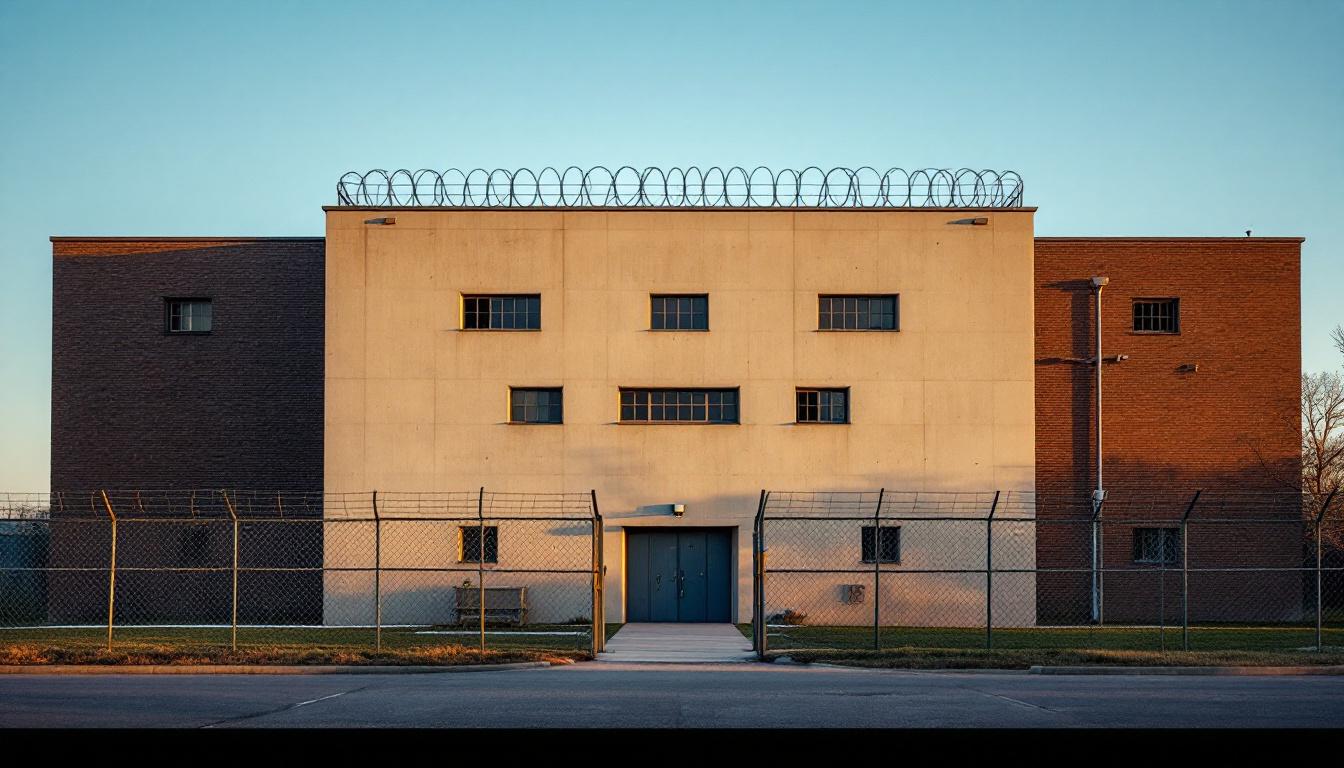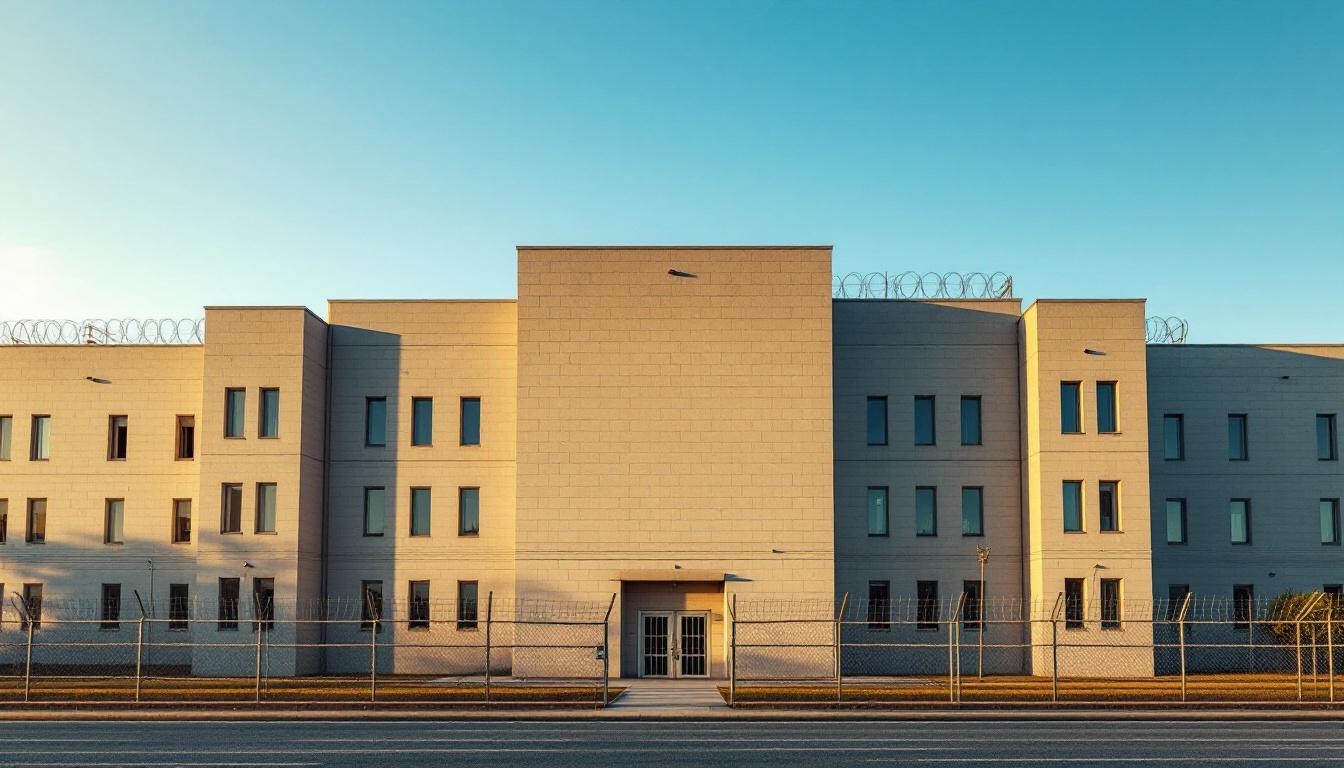
Quick Navigation
How to contact an inmate at Skagit County Community Justice Center
This comprehensive guide will walk you through how to connect with an inmate at Skagit County Community Justice Center. Follow the steps below to find an inmate and send letters and photos:
- Search for the inmate using our search tool below
- Create your account or log in to Penmate
- Write your message (up to 6,000 characters)
- Send instantly - inmates receive printed copies daily
Find an Inmate
Search for an inmate to start communicating today
Tip: You can search by first name, last name, or inmate ID number
To contact a person at Skagit County Community Justice Center start by searching for the person on the official facility website. Perform a search by following these steps:
- Step 1: Enter their first name and last name into the search form and click "Search"
- Step 2: Locate their inmate record
- Step 3: Write down their Inmate ID and any housing information provided
Important! Be sure to enter the person's full name. Nicknames should not be used.
How to Send Messages to Inmates

You can use your phone or computer to send emails, letters, and photos to an inmate. Messages are sent electronically to inmate tablets or kiosks at the facility. If you would like to send a message, start by searching for an inmate at Skagit County Community Justice Center.
Sending Photos and Postcards

A great way to send love and support to a loved one at Skagit County Community Justice Center is to send photos and postcards. It only takes a few minutes to send photos from your phone and it makes a huge difference. You can also mail postcards with words of support and inspiration, or design your own postcard for special moments like birthdays and holidays.
Important! Be sure not to send any explicit photos or they may not be approved by the facility. You can also use a photo printing app like Penmate to make sure your photos are printed at the correct size (4x6 or 3x5) and are mailed according to the rules and regulations of Skagit County Community Justice Center.
Frequently asked questions about Skagit County Community Justice Center
-
How long does it take to deliver a message?
If you're sending an email message your letter is usually delivered within 24-48 hours. For messages sent via mail you should expect delivery within 3-7 days. All messages will need be approved by Skagit County Community Justice Center.
-
How much does it cost to send a message to Skagit County Community Justice Center?
You can send a message free using your phone or mail a message via USPS for the price of a $0.60 stamp and envelope. You can also purchase credits or e-stamps from services starting at $1.99.
-
What services can I use to contact an inmate at Skagit County Community Justice Center?
Penmate
You can use Penmate to send letters and photos to an inmate from your phone. It's an easy way to stay in touch during your loved one's incarceration. Use the inmate locator to find an inmate's location and contact information, then you can send messages within a few minutes.
Securus messaging
Securus may be another option for communicating with an inmate at Skagit County Community Justice Center. You can create a friends and family account and purchase credits to send messages. All messages will be reviewed and must be approved by the facility.
JPay
Some county jails and state prisons may support sending messages with JPay. You must register an account with the system, find your loved one, and purchase stamps to send messages. For some locations you can also attach photos.
Smart Jail Mail
You may also check if Smart Jail Mail is available at Skagit County Community Justice Center. Smart Jail Mail is operated by Smart Communications and has contracted with some state and county jails. After purchasing credits, your messages and photos are sent to the facility, printed out, and then handed out to your loved one.
-
What is the mailing address of Skagit County Community Justice Center?
Mailing address:
Skagit County Community Justice Center
201 Suzanne Ln
Mount Vernon, WA 98273
Phone: (360) 416-1960 -
What are the visiting hours at Skagit County Community Justice Center?
Visiting hours at Skagit County Community Justice Center vary by housing unit and security level. Generally, visits are scheduled on weekends and holidays, with some facilities offering weekday visits. Contact the facility directly at (360) 416-1960 or check their website for the current visiting schedule. Visits typically last 30-60 minutes and must be scheduled in advance.
-
What items are prohibited when sending mail to Skagit County Community Justice Center?
Prohibited items typically include: cash, personal checks, stamps, stickers, glitter, glue, tape, staples, paperclips, polaroid photos, musical or blank greeting cards, hardcover books, magazines with staples, and any items containing metal or electronics. Only send letters on plain white paper with blue or black ink. Photos must be printed on regular photo paper (no Polaroids). Always check with Skagit County Community Justice Center for their specific mail policies.
-
How do I send money to an inmate at Skagit County Community Justice Center?
You can send money to an inmate at Skagit County Community Justice Center through several methods: 1) Online using JPay, Access Corrections, or the facility's approved vendor, 2) Money orders mailed directly to the facility with the inmate's name and ID number, 3) Kiosks located in the facility lobby, or 4) Over the phone using a credit or debit card. Fees vary by method, typically ranging from $2.95 to $11.95 per transaction.
-
Can I schedule a video visit with an inmate at Skagit County Community Justice Center?
Many facilities now offer video visitation as an alternative to in-person visits. At Skagit County Community Justice Center, video visits may be available through services like Penmate, Securus Video Connect, GTL, or ICSolutions. Video visits typically cost $10-20 for 20-30 minutes and must be scheduled in advance. You'll need a computer or smartphone with a camera and reliable internet connection. Contact the facility for their specific video visitation policies and approved vendors.
-
What identification do I need to visit an inmate at Skagit County Community Justice Center?
All visitors must present valid government-issued photo identification such as a driver's license, state ID, passport, or military ID. Minors must be accompanied by a parent or legal guardian who can provide the minor's birth certificate. Some facilities require visitors to be on the inmate's approved visitation list, which may require a background check. Contact Skagit County Community Justice Center for specific ID requirements and visitor approval procedures.
-
How can I find out an inmate's release date?
To find an inmate's release date at Skagit County Community Justice Center, you can: 1) Use the online inmate search tool if available, 2) Call the facility's records department, 3) Contact the inmate's case manager or counselor, or 4) Have the inmate provide this information during a call or visit. For privacy reasons, some facilities only release this information to immediate family members.
Facility Overview
Contact Information
Skagit County Community Justice Center201 Suzanne Ln
Mount Vernon, WA 98273
Phone: (360) 416-1960
Official Website

About Skagit County Community Justice Center
Nestled in the heart of Mt Vernon, Washington, within the fertile Skagit Valley region, this county correctional facility serves as a cornerstone of community safety and rehabilitation efforts for residents throughout Skagit County. The facility typically houses individuals awaiting trial, serving shorter sentences, or participating in various programs designed to support successful reintegration into the community. As a WA correctional facility, it operates within the broader framework of Washington State's commitment to progressive correctional practices and evidence-based rehabilitation approaches.
The Skagit County Jail, WA emphasizes residents services that extend beyond basic detention, often working collaboratively with local organizations, social service agencies, and educational institutions throughout the Pacific Northwest region. These partnerships may include substance abuse counseling, mental health support, educational opportunities, and vocational training programs tailored to help individuals develop practical skills for their return to community life. The facility generally maintains connections with community-based resources that can provide ongoing support after release, recognizing that successful rehabilitation often depends on strong community ties and accessible services.
Staff members typically focus on creating an environment that balances security with opportunities for personal growth and positive change. The county jail may offer various programming options such as life skills workshops, anger management courses, and educational classes designed to address the diverse needs of the population it serves. Through this service-oriented approach, the facility aims to support both individual transformation and broader community safety goals, reflecting Mt Vernon's commitment to comprehensive approaches to justice and rehabilitation within the Pacific region's correctional landscape.
Programs & Services
Comprehensive rehabilitation initiatives at Skagit County Jail emphasize skill development and successful community reintegration through evidence-based programming. The facility's approach recognizes that meaningful transformation occurs when residents engage in structured learning opportunities that address both immediate needs and long-term goals. This philosophy guides the development of initiatives that may deliver educational advancement, vocational training, and therapeutic support services designed to reduce recidivism while fostering personal growth.
Educational services typically form the cornerstone of resident development, often including basic literacy instruction, GED preparation, and computer skills training that prepare individuals for post-release success. Additionally, vocational programs may offer hands-on training in construction trades, food service, and facility maintenance, allowing residents to develop marketable skills while contributing to jail operations. The landscaping initiative often provides outdoor work opportunities that teach horticultural techniques and equipment operation, while general work programs typically allow residents to gain experience in various operational areas throughout the facility.
Support services and transitional planning initiatives focus extensively on preparing residents for successful community reentry through comprehensive case management and resource coordination. Reentry preparation programs may deliver assistance with housing applications, employment searches, and benefit enrollment, while connecting residents with community-based services. These therapeutic initiatives often include substance abuse counseling, mental health support, and life skills workshops that address the underlying factors contributing to criminal behavior, creating a foundation for sustained positive change upon release.
Daily Life & Visitation
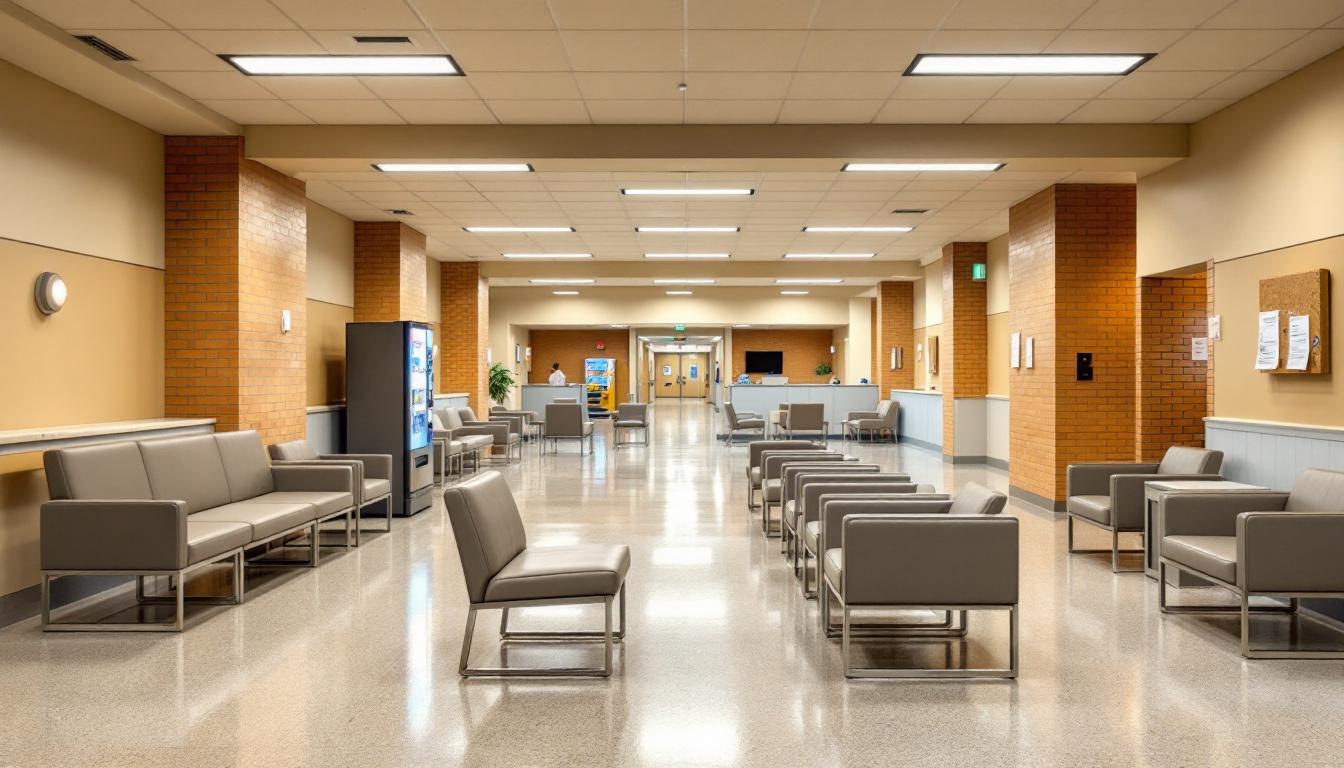
The rhythmic sound of morning announcements currently marks the beginning of each day at Skagit County Jail, as residents follow a carefully structured schedule that continues to provide predictability and order throughout their stay. Wake-up calls typically occur in the early morning hours, followed by personal hygiene time and preparation for the day ahead. Meal service generally begins with breakfast served in designated dining areas or delivered to housing units, depending on security classifications and facility protocols. The structured routine continues with scheduled programming, work assignments, and recreational periods that help residents maintain a sense of purpose and routine during their time at the facility.
Living accommodations at the facility typically consist of shared cells or dormitory-style housing units, where residents may be housed based on classification levels, security needs, and available space. Each housing area generally includes basic amenities such as beds, storage space for personal belongings, and access to restroom facilities. Additionally, residents usually have opportunities to purchase approved items through the commissary system, which may include snacks, hygiene products, and writing materials. The housing units often feature common areas where residents can engage in quiet activities, watch television during designated hours, or participate in informal social interactions under staff supervision.
While daily schedules deliver structure through work assignments that may include kitchen duties, laundry services, or facility maintenance tasks, residents also typically have access to recreational opportunities such as exercise periods and outdoor time when weather and security conditions permit. Programming schedules often include educational classes, substance abuse counseling, or other rehabilitative services designed to support personal development. Family connections remain important through scheduled visitation periods and phone call privileges, which generally operate according to established guidelines and security protocols. Additionally, residents may participate in religious services or other spiritual activities that continue to provide emotional support and community connection during their incarceration.
Ready to Connect?
Start communicating with your loved one today
Search for an Inmate
